#Frances de la Tour
Explore tagged Tumblr posts
Text

#tv shows#tv series#polls#vicious#ian mckellen#derek jacobi#frances de la tour#2010s series#british series#have you seen this series poll
65 notes
·
View notes
Text
"Who's that girl" DWM 268 (1998)
So, who would have played the Doctor if she'd been a woman from the first? DWM rounds up the likely ladies …

Hermione Baddeley 1963-66 Renowned for unsympathetic roles in both Brighton Rock and the dour 'kitchen sink'-styled Room at the Top, film veteran Baddeley made an enthralling Doctor - part dragon, part slightly dotty maiden aunt. Eternal juvenile Melvyn Hayes was 'unearthly' grandson Stephen Vivian Pickles 1966-69 Although much younger, and never a lead, the versatile Pickles had been a familiar TV face for 20 years (Harpers West One, etc) before being cast as Baddeley's successor. Her sprightly, elfin Doctor had a penchant for dressing-up, like a St Trinian's tomboy who never left school

Liz Fraser 1970-74 A comic actress familiar from several Carry Ons, Fraser's initial trepidation at taking on an ostensibly serious role soon dissipated. Her bossy, big-sisterly show-off of a Doctor was best paired with dippy companion Joe Grant (later Playgirl pin-up Robin Askwith) Frances de la Tour 1974-81 Gangling, piercing-eyed Shakespearean actress de la Tour played a tweedy, louche, Bohemian Doctor part-based on Virginia Woolf. Caused a minor sensation when she married the young actor who played the second incarnation of Time Lord companion Roman — Peter Davison

Jan Francis 1982-84 Despite rumours that the next Doctor might be played by a man (former New Avenger Gareth Hunt is hotly tipped), the youngest actress yet is cast. Fresh from middlebrow thirties drama The Good Companions, Francis made for a sporty Doctor in Lottie Dod-style tennis whites Lynda Bellingham 1984-86 Known to SF fans for her role as Barbara the Butcher in an episode of Jenna's 7, Bellingham's controversial Doctor was a loud, hectoring grand-dame of the theatre. Unceremoniously 'regenerated' following the Doctor's on- (and off-) screen inquisition in the epic Trial of a Time Lady

Pauline Melville 1987-89 Virtually unknown fringe cabaret and cult comedy artiste is surprise choice for 'back to basics' Seventh Doctor. Fan fears that series will become showcase for childish high-jinks up-ended when Melville stories adopt a sombre, down-beat mood, performed with conviction and gravitas Miranda Richardson 1996 The eldest in a successful line of acting siblings, a favourite of BBC producers since high-profile lead debut in revisionist biographical drama of notorious 20th century 'villain', makes a bid for American network stardom via lavish new big-haired version of Doctor Who. Star Trek actor Alexander Siddig plays love interest Dr Brian
#doctor who#classic doctor who#8th doctor#7th doctor#6th doctor#5th doctor#4th doctor#3rd doctor#2nd doctor#1st doctor#Miranda Richardson#Pauline Melville#Lynda Bellingham#Jan Francis#Frances de la Tour#Liz Fraser#Vivian Pickles#Hermione Baddeley
115 notes
·
View notes
Text
I don't hate HIM
I can't. I wish I could but I can't. And it is not because the character is written badly. It's the actor. I DON'T HATE THE ACTOR - WHAT I MEAN IS THE CHARACTER.
The character - Metatron is played by Derek Jacobi whom I've seen in various shows/movies but mainly I remember him from Vicious, a comedy tv show/sitcom which has 2 seasons and he played alongside Ian McKellen, Frances de la Tour, and Ivan Rheon.
Seriously because of THAT sitcom no matter WHAT Metatron will do in season 3 - I just can't get to hate the character because Derek Jacobi plays him. Whenever I see the actor on screen I instantly get - Doctor Who and Vicious flashbacks.
youtube
And if any of you HAVE NOT seen Vicious - seriously get your s**t together and watch it. You won't be disappointed.
#good omens#gomens#metatron#derek jacobi#vicious#ian mckellen#ivan rheon#frances de la tour#tv show#sitcom#character#Youtube
46 notes
·
View notes
Text

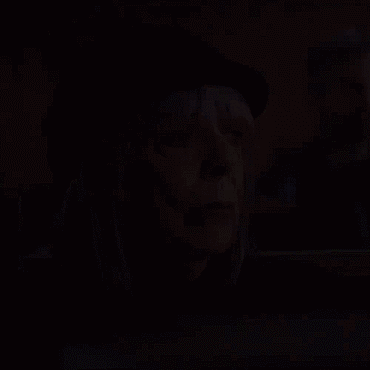
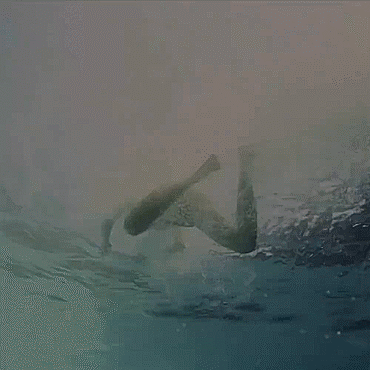
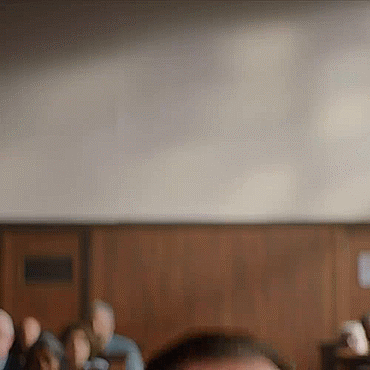
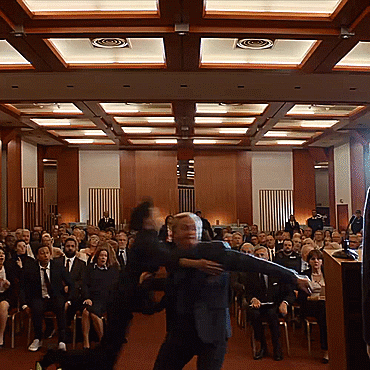


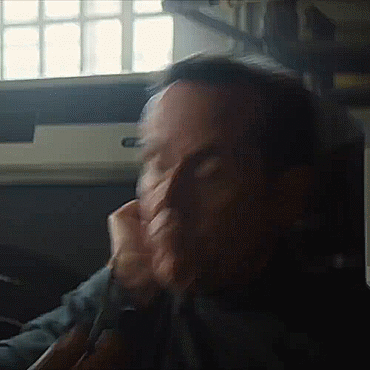


PROFESSOR T
series 3 trailer
#professor t#ben miller#jasper tempest#Frances de la tour#emma naomi#juliet aubrey#barney white#my gifs#trailer
34 notes
·
View notes
Text
Professor T gets a series 5 ahead of series 4 transmission!
Professor T gets a series 5 ahead of series 4 transmission!
If, like me, you’re looking forward to series 4 of Professor T later this year, you’ll be pleased the hear ITV has already commissioned series 5! The full details are here —I’ve borrowed the salient points. Ben Miller returns to play Cambridge’s illustrious Professor Jasper Tempest, whilst Frances de la Tour, also reprises her role as the Professor’s mother Adelaide Tempest and they are joined…
#barney white#ben miller#cambridge#commission#cozy crime#featured#frances de la tour#itv#juliet stevenson#pre-production#professor t#rhian blundell#sunetra sarker#zoë wanamaker
3 notes
·
View notes
Text






via
#movies#merchandise#goblet of fire#daniel radcliffe#david tennant#emma watson#robert pattinson#clemence poesy#Stanislav Ianevski#miranda richardson#micheal gambon#jeff rawle#frances de la tour#robbie coltrane
10 notes
·
View notes
Text
311 - The Lady in the Van

We wanted to take this week's episode to tribute the recently departed Dame Maggie Smith and finally take a look at one of her final awards contenders, 2015's The Lady in the Van. Reprising the role she played on the stage, Smith stars as the titular lady, who lives in a van that just so happens to take up residence near the home of playwright Alan Bennett. Alex Jennings stars as Bennett, and the film examines both his evolving relationship with his neighbor and, in metatextual ways, Bennett's conflicted feelings about telling her story.
This episode, we talk about Dame Maggie Smith's late career resurgence and she joins our Six Timers Club! We also talk about the film's cameo lineup from the cast of The History Boys, tributes posted after Smith's passing, and our first Halloween watches of this season.
Topics also include director Nicholas Hytner, 2015 Best Actress, and Philo-mania.
The 2015 Academy Awards
Vulture's Movies Fantasy League
Subscribe:
Patreon
Spotify
Apple Podcasts
youtube
youtube
#Maggie Smith#Alex Jennings#Alan Bennett#Nicholas Hytner#Best Actress#Jim Broadbent#Frances de la Tour#Claire Foy#Russell Tovey#Dominic Cooper#Academy Awards#Oscars#movies#Youtube
3 notes
·
View notes
Text

#tv times#rising damp#leonard rossiter#frances de la tour#70's#television#sitcom#vintage#late 70's#1978#british
5 notes
·
View notes
Text
"VANITY FAIR" (2018) Review
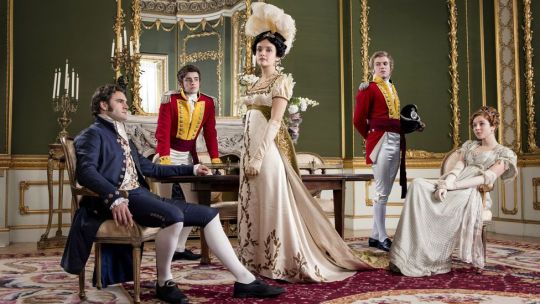
“VANITY FAIR” (2018) Review
When I had first heard that the ITV channel and Amazon Studios had plans to adapt William Makepeace Thackeray’s 1848 novel, “Vanity Fair”, I must admit that I felt no interest in watching the miniseries. After all, I had already seen four other adaptations, including the BBC’s 1987 production. And I regard the latter as the best version of Thackeray’s novel I had ever seen.
In the end, my curiosity got the best of me and I decided to watch the seven-part miniseries. In a nutshell, "VANITY FAIR" followed the experiences of Rebecca "Becky" Sharp, the social climbing daughter of an English not-so-successful painter and a French dancer in late Georgian England during and after the Napoleonic Wars. The production also told the story of Becky's school friend and daughter of a wealthy merchant, Amelia Sedley. The story begins with both young women leaving Miss Pinkerton’s Academy for Young Ladies. Becky managed to procure a position as governess to Sir Pitt Crawley, a slightly crude yet friendly baronet. Before leaving for her new position, Becky visits Amelia's family. She tries to seduce Jos Sedley, Amelia's wealthy brother and East India Company civil servant. Unfortunately George Osborne, a friend of Jos and son of another wealthy merchant, puts a stop to the budding romance.
While working for the Crawleys, Becky meets and falls in love with Sir Pitt’s younger son, Captain Rawdon Crawley. When Sir Pitt proposes marriage to Becky, she shocks the family with news of her secret marriage to Rawdon. The couple becomes ostracized and ends up living in London on Rawdon’s military pay and gambling winnings. They also become reacquainted with Amelia Sedley, who has her own problems. When her father loses his fortune, George's own father insists that he dump Amelia and marry a Jamaican heiress. George refuses to do so and thanks to his friend William Dobbin's urging, marries Amelia. Mr. Osborne ends up disinheriting George. However, the romantic lives of Becky and Amelia take a backseat when history overtakes them and their husbands with the return of Napoleon Bonaparte.
I wish I could say that the 2018 miniseries was the best adaptation of Thackery's novel I had seen. But it is not. The production had its . . . flaws. One, I disliked its use of the song "All Along the Watchtower" in each episode's opening credits and other rock and pop tunes during the episodes' closing credits. They felt so out of place in the miniseries' production. Yes, I realize that a growing number of period dramas have doing the same. And quite frankly, I detest it. This scenario barely worked in the 2006 movie, "MARIE ANTOINETTE". Now, this use of pop tunes in period dramas strike me as awkward, ham-fisted, unoriginal and lazy.
I also noticed that producer and screenwriter Gwyneth Hughes threw out the younger Pitt Crawley character (Becky's brother-in-law), kept the Bute Crawley character and transformed him from Becky Sharp's weak and unlikable uncle-in-law into her brother-in-law. Hughes did the same with the Lady Jane Crawley and Martha Crawley characters. She tossed aside the Lady Jane character and transformed Martha from Becky's aunt-in-law to sister-in-law. Frankly, I did not care for this. I just could not see characters like Bute and Martha suddenly become sympathetic guardians for Becky and Rawdon's son in the end. It just did not work for me. I have one last problem with "VANITY FAIR", but I will get to it later.
I may not regard "VANITY FAIR" as the best adaptation of Thackery's novel, I cannot deny that it is first-rate. Gwyneth Hughes and director James Strong did an excellent job of bringing the 1848 novel to life on the television screen. Because this adaptation was conveyed in seven episodes, both Hughes and Strong were given the opportunity retell Thackery's saga without taking too many shortcuts. The miniseries replayed Becky Sharp's experiences with the Sedley family, George Osbourne, and the Crawley family in great detail. I was especially impressed by the miniseries' recount of Becky and Amelia's experiences during the Waterloo campaign - which is the story's true high point, as far as I am concerned. Also, this adaptation had conveyed George's experiences during Waterloo with more detail than any other adaptation I have seen.
Aside from the Waterloo sequence, there were other scenes that greatly impressed me. I really enjoyed those scenes that featured the famous Duchess of Richmond's ball in the fourth episode, "In Which Becky Joins Her Regiment"; Becky's attempts to woo Jos Sedley in the first episode, "Miss Sharp In The Presence Of The Enemy"; the revelation of Becky's marriage to Rawdon Crawley in "A Quarrel About An Heiress"; and her revelation to Amelia about the truth regarding George in the final episode, "Endings and Beginnings". There were people who were put off that the series did not end exactly how the novel did - namely the death of Jos, with whom Becky had hooked up in the end. I have to be honest . . . that did not bother me. However, I was amused that Becky's last line in the miniseries seemed to hint that Jos' death might be a possibility in the near future.
The production values for "VANITY FAIR" struck me as quite beautiful. I thought Anna Pritchard's production designs did an excellent job in re-creating both London, the English countryside, Belgium, Germany, India and West Africa between the Regency era and the early 1830s. Not only did I find the miniseries' production values beautiful, but also Ed Rutherford's cinematography. His images struck me as not only beautiful, but sharp and colorful. I would not say that Lucinda Wright and Suzie Harman's costume designs blew my mind. But I cannot deny that I found them rather attractive and serviceable for the narrative's setting.
One of the production's real virtues proved to be a very talented cast. "VANITY FAIR" featured some solid performances from it supporting players. Well . . . I would say more than solid. I found the performances of Robert Pugh, Peter Wight, Suranne Jones, Claire Skinner, Mathew Baynton, Sian Clifford, Monica Dolan, and Elizabeth Berrington to be more than solid. In fact, I would say they gave excellent performances. But they were not alone.
Michael Palin, whom I have not seen in a movie or television production in years, gave an amusing narration in each episode as the story's author William Makepeace Thackeray. Ellie Kendrick gave a very poignant performance as Jane Osborne, who seemed to be caught between her loyalty to her bitter father and her long-suffering sister-in-law. Simon Beale Russell gave a superb, yet ambiguous portrayal of the warm and indulgent John Sedley, who also had a habit of infantilizing his family. Frances de la Tour was deliciously hilarious and entertaining as Becky Sharp's aunt-in-law and benefactress Lady Matilda Crawley. I could also say the same about Martin Clunes, who gave a very funny performance as the crude, yet lively Sir Pitt Crawley. One last funny performance came from David Fynn, who gave an excellent portrayal of the vain, yet clumsy civil servant, Jos Sedley. Anthony Head gave a skillful performance as the cynical and debauched Lord Styne. I thought Charlie Rowe was superb as the self-involved and arrogant George Osborne. Rowe, whom I recalled as a child actor, practically oozed charm, arrogance and a false sense of superiority in his performance as the shallow George.
I have only seen Johnny Flynn in two roles - including the role of William Dobbin in this production. After seeing "VANITY FAIR", it seemed that the William Dobbin role seemed tailored fit for him. He gave an excellent performance as the stalwart Army officer who endured years of unrequited love toward Amelia Sedley. Tom Bateman was equally excellent as the charming, yet slightly dense Rawdon Crawley. At first, I thought Bateman would portray Rawdon as this dashing, yet self-confident Army officer. But thanks to his performance, the actor gradually revealed that underneath all that glamour and dash was a man who was not as intelligent as he originally seemed to be. Amelia Sedley has never been a favorite character of mine. Her intense worship of the shallow George has always struck me as irritating. Thanks to Claudia Jessie's excellent performance, I not only saw Amelia as irritating as usual, but also sympathetic for once.
Television critics had lavished a great deal of praise upon Olivia Cooke as the sharp-witted and manipulative Becky Sharp. In fact, many have labeled her performance as one of the best versions of that character. And honestly? I have to agree. Cooke was more than superb . . . she was triumphant as the cynical governess who used her charms and wit in an attempt to climb the social ladder of late Georgian Britain. I would not claim that Cooke was the best on-screen Becky I have seen, but she was certainly one of the better ones. I have only one minor complaint - I found her portrayal of Becky as a poor parent to her only son rather strident. Becky has always struck me as a cold mother to Rawdon Junior. But instead of cold, Cooke's Becky seemed to scream in anger every time she was near the boy. I found this heavy-handed and I suspect the real perpetrator behind this was either screenwriter Gwyneth Hughes or director James Strong.
I have a few complaints about "VANITY FAIR". I will not deny it. But I also cannot deny that despite its few flaws, I thought it was an excellent adaptation of William Makepeace Thackeray's novel. Actually, I believe it is one of the better adaptations. "VANITY FAIR" is also one of the best period dramas I have seen from British television in a LONG TIME. And I mean a long time. Most period dramas I have seen in the past decade were either mediocre or somewhere between mediocre and excellent. "VANITY FAIR" is one of the first that has led me to really take notice in years. And I have to credit Gwyneth Hughes' writing, James Strong's direction and especially the superb performances from a first-rate cast led by Olivia Cooke. It would be nice to see more period dramas of this quality in the near future.
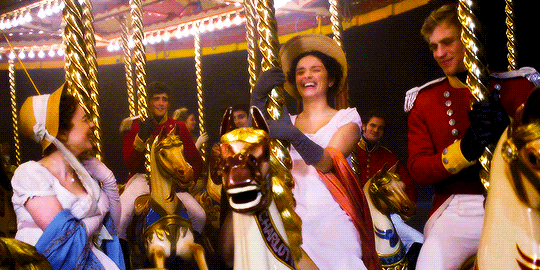
#vanity fair#william makepeace thackeray#michael palin#olivia cooke#tom bateman#johnny flynn#claudia jessie#james strong#anthony stewart head#charlie rowe#ellie kendrick#napoleonic wars#period drama#period dramas#costume drama#suranne jones#history#frances de la tour#simon beale russell#martin clunes#elizabeth barrington#monica dolan#david flynn#claire skinner#sian clifford#robert pugh#martin baynton#richie campbell
10 notes
·
View notes
Text
The Nutcracker in 3D (2010)
In today’s review. I find new dimensions in bringing an idea to life. As I attempt a #positive review of the 2010 film The Nutcracker in 3D #ElleFanning #NathanLane #JohnTurturro #CharlieRowe #ShirleyHenderson #FrancesdelaTour #AaronMichaelDrozin
We all have dreams and passions, those grand gestures that we would give back to the world if we just had a little more in terms of resources, energy, or anything else for that matter. Maybe these great works just need a little time, and maybe the technology just isn’t there yet. When the time does come, will the world be ready? In 2010, famed Russian director Andrei Konchalovsky finally got the…
#2010#Aaron Michael Drozin#Africa Nile#Alan Cox#Attila Kalmár#Charlie Rowe#Daniel Peacock#Elle Fanning#Ferenc Elek#film#films#Frances de la Tour#Hugh Sachs#Jason Harris Katz#John Turturro#Jonny Coyne#Movies#Nathan Lane#Peter Elliott#positive#review#Richard E. Grant#Robert Creighton#Shirley Henderson#Stuart Hopps#Yulia Vysotskaya
0 notes
Text
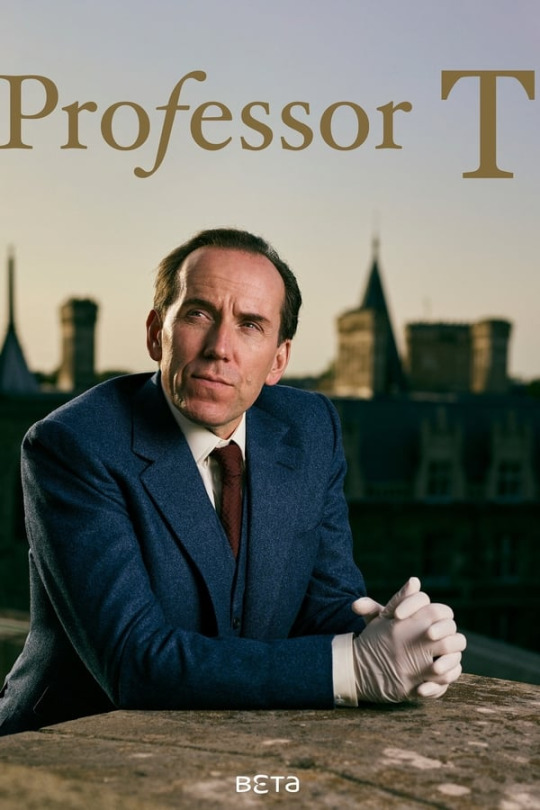
#tv shows#tv series#polls#professor t#barney white#ben miller#frances de la tour#2020s series#british series#have you seen this series poll
38 notes
·
View notes
Text


PARIS LA NUIT
#paris#la nuit#by night#por la noche#tour eiffel#gustave eiffel#eiffel tower#torre eiffel#île de france#france#francia#europe#europa
234 notes
·
View notes
Text

Beaumont-la-Ronce, Indre-et-Loire, Centre-Val de Loire.
#Beaumont-la-Ronce#Beaumont-Louestault#Canton of Château-Renault#Arrondissement of Tours#Indre-et-Loire#Centre-Val de Loire#France
152 notes
·
View notes
Text






Postcards from the Grand Tours
#cycling#primoz roglic#primož roglič#jonas vingegaard#sepp kuss#giro d'italia#tour de france#la vuelta ciclista a españa#eric.graphics#made the vuelta one as a vuelta graphic but then i had so much fyun making it that i just added the rest rip. brb time to go back to reques
121 notes
·
View notes
Text
Professor T series 3 — some thoughts
Professor T series 3 — some thoughts
In my opinion (and I’ll justify later), Professor T series 3 was the strongest so far. It was also transitional, and in evolving the storyline, I felt there were some flaws. I’ll explain what I mean below and there will be spoilers. I’ll break my thoughts down into the good, the bad and the flawed. Professor T series 3 — the good The idea of Professor Jasper Tempest (Ben Miller) in prison was…

View On WordPress
1 note
·
View note